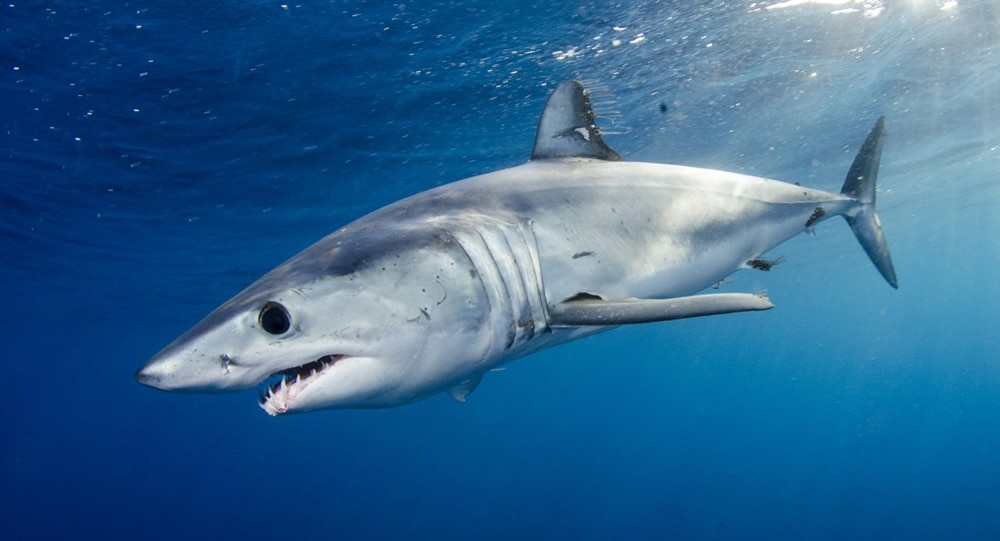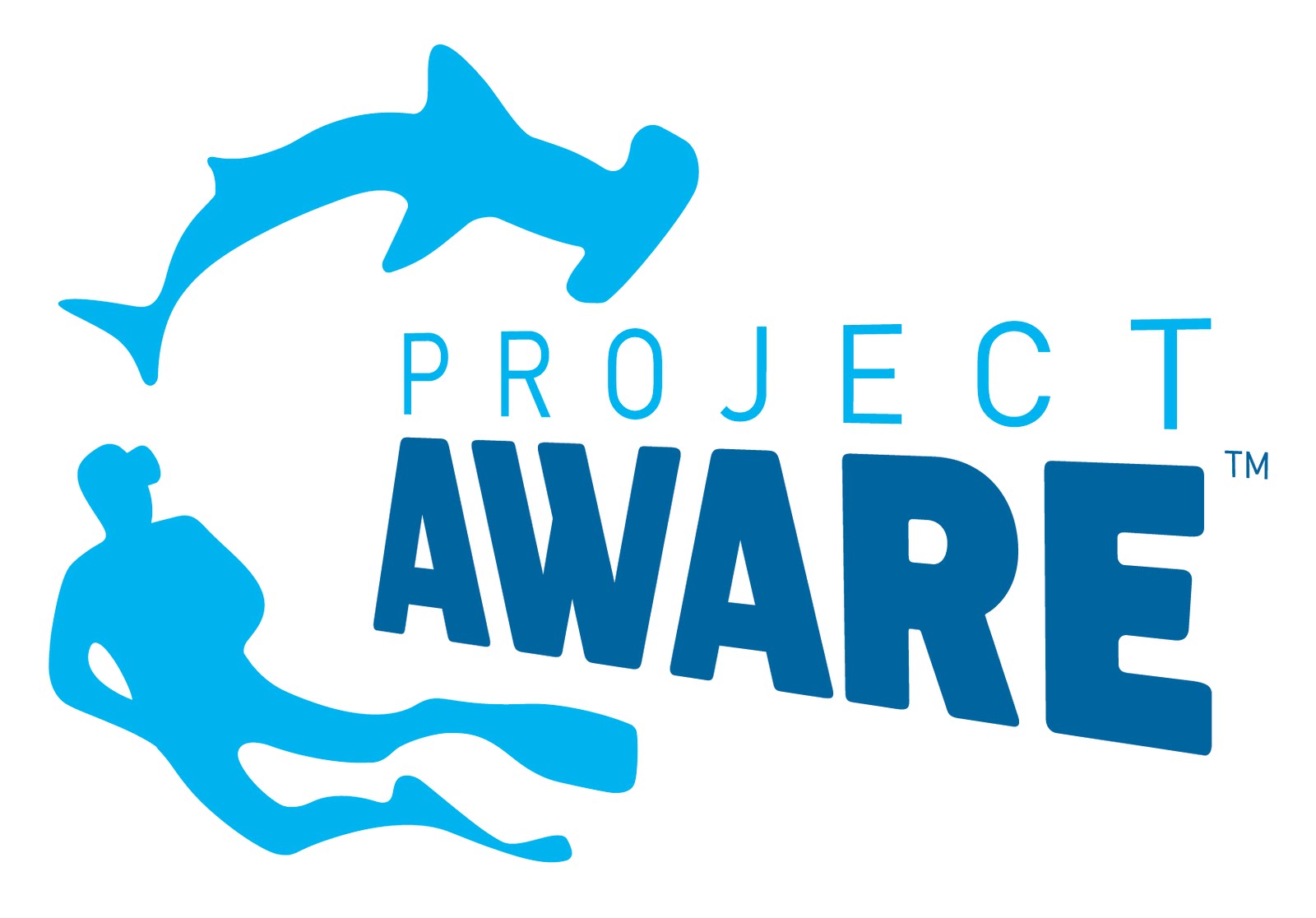News
Conservation groups celebrate new protections for Mako Sharks & Rhino Rays

 Eighteen Shark and Ray Species Granted New Global Trade Controls at Wildlife Conference
Eighteen Shark and Ray Species Granted New Global Trade Controls at Wildlife Conference
Makos, Wedgefishes, and Giant Guitarfishes listed under CITES with support from more than 100 countries.
Conservation groups are praising today’s confirmation that all species of Wedgefishes, Giant Guitarfishes, and Mako Sharks will be added to Appendix II of the Convention on International Trade in Endangered Species (CITES). The listings mandate that countries track exports as well as high seas take, and demonstrate that internationally traded products from these species are legally sourced from sustainable fisheries.
“Today’s decisions offer promise of a brighter future for these highly threatened shark and ray species, as international trade has been a major factor in depletion of their slow growing populations,” said Sonja Fordham, President of Shark Advocates International, a project of The Ocean Foundation. CITES listing can help end unsustainable use of Makos, Wedgefishes, and Giant Guitarfishes by prompting improved trade data and much-needed limits on exploitation, while complementing other conservation commitments. As fishing is the main threat to sharks and rays, it’s essential that countries’ CITES representatives work with their national fisheries agency counterparts to ensure that the new obligations are carried out over the coming months.
Shortfin Makos, exceptionally valuable and vulnerable oceanic sharks, are at risk from targeted and incidental fishing driven by demand for meat and fins. A lack of limits on take is leading to overfishing and a worldwide decreasing trend. Both the Shortfin Mako and the rarer Longfin Mako Shark are classified as Endangered on the IUCN Red List.
The North Atlantic offers the clearest case of Shortfin Mako overfishing and decline. In 2019, scientists associated with the International Commission for the Conservation of Atlantic Tunas (ICCAT) reported that North Atlantic Shortfin Mako catches need to be cut by roughly an order of magnitude (~3000 to ~300 tonnes per year) to give the population a decent (60%) chance of recovering within five decades. Taking into account incidental mortality, ICCAT scientists are recommending a complete ban on North Atlantic Shortfin Mako retention.
Considering that Spain leads the world in Mako Shark landings, we’re encouraged that the European Union co-sponsored the proposal to list Makos under CITES,” said Ali Hood, Director of Conservation for the Shark Trust. “We urge the EU to underscore this commitment through proposals to immediately ban North Atlantic Shortfin Mako retention and establish concrete catch limits to ensure Mako landings from all other oceans are sustainable. As virtually all fishing countries are CITES Parties, we’ll be watching for support for such Mako limits at regional fisheries bodies around the world, starting with ICCAT in November.“
Wedgefishes and Giant Guitarfishes, collectively known as Rhino Rays (after their pointy snouts), are considered the world’s most threatened marine fishes. All but one of these 16 shark-like ray species have been classified as Critically Endangered on IUCN Red List. Their fins are among the most valuable in the global shark fin trade. The coastal fisheries that target or retain Rhino Rays as bycatch are poorly monitored, essentially unregulated, and increasingly intense.
Rhino Rays are seriously threatened by demand for fins and food, but these extraordinary species have the potential to offer long-term, sustainable benefits as key attractions for ecotourism, particularly in the Indo-Pacific region, said Ian Campbell, Associate Director for Project AWARE. “We are deeply grateful to the many divers who joined us in voicing support for the CITES listings. We now look forward to working with this network and our other partners toward ensuring prompt and full implementation of the international conservation commitments made today.”
Gear News
Introducing the TR-80, IR-50 and CS-30 Regulators from DYNAMICNORD

Whether you are a beginner or a professional diver – with the three new main regulators from DYNAMICNORD, everyone will find their favourite regulator. They all look super stylish.
Excellent performance with the TR-80
Quality and performance are the be-all and end-all for regulators. It is not for nothing that the TR stands for Tec Reg. The innovative design of the TR-80 guarantees absolute reliability – even in ice-cold waters.

Perfect breathing effort at 0.8 J/l / certified for diving in waters below 10 degrees / structural design made of solid brass for best cold protection / membrane-compensated design with dry seal of the first stage / reduced exhalation effort thanks to optimized exhalation membrane and bubble deflector / adjustable Venturi (dive/predive) and adjustment knob for individual inhalation comfort / innovative design of the front cover prevents free-flow in strong currents or when diving with scooters / design made of sandblasted brass, matt chrome finish / 2 HP and 4 LP outlets / mouthpiece made of high-quality, anti-allergic silicone for maximum comfort.


Amazing underwater adventures with the IR-50
The IR-50 is the top regulator for advanced and experienced divers. Natural breathing is the essence of this regulator.

Ideal breathing effort at 0.8 J/l /certified for diving in waters below 10 degrees / compensated membrane / adjustable venturi (dive/predive) and adjustment knob for individual inhalation comfort/ outlet valve and deflector for minimum exhalation effort and reduction of bubbles on the face / design made of sandblasted brass, matt chrome finish / 2 HP and 4 NP outlets / mouthpiece made of high-quality, anti-allergic silicone for maximum comfort.


The Workhorse – our CS-30
For diving centres and diving beginners – the workhorse stands for strong construction, reliability and robustness. Perfect for your training.

Optimal breathing effort at 0.8 J/l /recommended for diving in waters above 10 degrees / non-compensated piston / adjustable venturi (dive/predive) / outlet valve and deflector for minimum exhalation effort and reduction of bubbles on the face / design made of sandblasted brass, matt chrome finish / 1 HP and 3 NP outlets / mouthpiece made of high-quality, anti-allergic silicone for maximum comfort.


Octopus OP-30
The OP-30 is the ideal addition to all DYNAMICNORD regulators. It is identical in construction to the CS-30.

The TR-80, IR-50, CS-30 (DIN & INT) regulators and the Octopus OP-30 are available from DYNAMICNORD dealers and in the online store.
DYNAMICNORD – Your Outdoor Companion.
Marine Life & Conservation
Paul Watson Released as Denmark Blocks Japan’s Extradition Bid

Renowned anti-whaling activist Paul Watson has been released from custody in Greenland after spending five months in detention. Denmark’s Justice Ministry rejected Japan’s request for his extradition, citing insufficient guarantees that his time already served in custody would be credited against any potential sentence.
The 74-year-old Canadian-American was arrested on July 21 in Nuuk, Greenland’s capital, when his ship docked to refuel. His arrest was based on a 2012 Japanese warrant related to a 2010 encounter in Antarctic waters. Japan alleged Watson obstructed operations and caused damage to a whaling research ship during efforts to disrupt illegal whaling. Watson has consistently denied these claims, maintaining his commitment to marine conservation.
Denmark, which oversees extradition matters for Greenland, concluded that while the legal conditions for extradition were met, the lack of assurances from Japan regarding time-served credit made extradition untenable.
In a video shared by his foundation, Watson expressed gratitude and relief, saying, “After five months, it’s good to be out… and good to know they’re not sending me to Japan.” He added that the most difficult part of his time in custody was being separated from his two young sons.
Watson is a pioneering figure in marine conservation, known for founding the Captain Paul Watson Foundation in 2022 after decades of activism with the Sea Shepherd Conservation Society. His bold efforts to defend marine life have earned him widespread support, including from celebrities and conservationists. His work has also been featured in the acclaimed reality TV series Whale Wars.
Watson’s lawyer, Jonas Christoffersen, praised the decision, stating, “We are happy and relieved that Paul Watson is now free.” He added that Watson is eager to reunite with his family and continue his vital work.
The arrest occurred while Watson’s vessel, the M/Y John Paul DeJoria, was en route to the North Pacific with a team of 26 volunteers to intercept a Japanese whaling ship. His foundation described the arrest as politically motivated and emphasized that Watson’s actions were focused on ending illegal whaling practices.
Japan resumed commercial whaling in 2019 after leaving the International Whaling Commission, asserting that whale meat is a cultural tradition. Conservationists, however, continue to challenge these practices, highlighting their impact on marine ecosystems.
Despite the challenges, Watson remains steadfast in his mission to protect marine life and bring attention to whaling practices. His dedication to ocean conservation has made him a globally respected advocate for the environment.
-

 News2 months ago
News2 months agoIconic SS United States to become the World’s Largest Artificial Reef
-

 News3 months ago
News3 months agoBook Review – 52 Assignments: Underwater Photography
-

 Gear News3 months ago
Gear News3 months agoDYNAMICNORD – New German diving brand enters the British market
-

 News3 months ago
News3 months agoExploring Cenote El Pit: A Diver’s Dream
-

 Gear News3 months ago
Gear News3 months agoTry BARE drysuits (and maybe even win one!) this Friday with Sea & Sea at North West Dive Fest
-

 Marine Life & Conservation3 months ago
Marine Life & Conservation3 months agoBook Review: Coral Triangle Cameos
-

 Blogs2 months ago
Blogs2 months agoDive the Egyptian Red Sea this Autumn with Regaldive
-

 News3 months ago
News3 months ago2024 Ocean Art Underwater Photo Competition Announced















